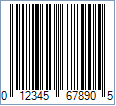Use both wolfram|alpha and Google to try and determine the answer to the following questions.
For each one, state the answer, and say which tool was the most useful or fastest in finding the answer.
Remember: List either your alpha query or your Google search query that resulted in the answer. The answer itself is only part of the assignment.
1. All English words containing the letters "eue"
For Google I typed in “words, letters "eue”” and received:
feued
queue
queued
queueing
queuer
queuers
queues
http://www.morewords.com/contains/eue/
For WolframAlpha I typed in, “What words contain eue?” and received:
queue
queued
queues
http://www.wolframalpha.com/input/?i=What+words+contain+eue%3F
Although Google came back with more, I would have to say that the wolramAlpha was easiest because all I had to do was form a simple question and it automatically defaulted to only English words.
2. How much potassium in 4.7 oz of banana?
Google’s results were too ambiguous and unrelated. In WolframAlpha I typed in the question as it is presented and I received immediate results. WolframAlpha broke down the question into these parts: banana, amount, 4.7 oz, and potassium.
The answer is 477 mg.
3. How old was Barack Obama on the day you were born?
WolframAlfpha was again the most efficient and fastest in finding this answer. I asked, ”Age of Barack Obama on August 28, 1985?” in the search field and received the answer: 24 years, 24 days. Simple.
Google was a mess.
4. Date and time of the next total solar eclipse in Eugene?
Well I have to say, WolframAlpha is the best option if you want specific answers. I simplified the question right off the bat into this: solar eclipse in Eugene Oregon.
WolframAlpha broke it down into these parts: next, solar eclipse, after [today], from Eugene, Oregon.
Wow.
And the answer is Sunday, May 20, 2012 at 4:52 p.m. PDT, 2.277 years from now.
Google sucked.
5. What is the minimum and maximum price of Google stock since it went public?
This one was a little tricky to find. Both found the answer eventually but I wanted it to be found via one simple entry. Finally, WolframAlpha came through. I typed in, “Google minimum stock 2004-2010,” into the search query. The results were this: in August 19, 2004 (year Google went public) the stock was sold for $95 (its lowest), on November 6, 2007 the stock was at its highest selling for $725.
6. Link an image of the barcode for UPC 01234567890

Both Google and WolframAlpha found this easily. For both I typed in, “barcode, 01234567890 .” Google’s results were found in Google Images. The image above is Google’s. WolframAlpha gave me the actual source codes for the UPC structure in two different formats.
7. How many vertices does an icosahedron have?
I typed in, ”icosahedron vertices,” in WolframAlpha and,”How many vertices does an icosahedron have” in Google. Both gave me the immediate result of 12 vertices.
8. Distance from Eugene to Tokyo?
WolframAlpha wins again. I wrote, “Distance Eugene, OR to Tokyo, Japan,” and received the result of 4886 miles. I also got results in Kilometers, nautical miles, and time (by plane, sound, light in fiber, and light in a vaccum). Google gave me links to pages to find the results.
9. Average Oregon income per capita?
I typed in, “Average Oregon income per capita,” and received $31,930 per year per capita (2007 estimate) from WolframAlpha and $32,274.52 per capita via a Google search (http://www.statemaster.com/graph/eco_per_inc_percap-economy-personal-income-per-capita). I would have to say that WolframAlpha was easier just because of its immediacy.
10. What is the Morse code for your first name?
Both pulled through. I typed in, “Morse code, Bill,” in both. WolframAlpha showed it to me via an image. Google wins though. It directed me to the Morse Code Translator (http://morsecode.scphillips.com/jtranslator.html) where I could see it and hear it.
-... .. .-.. .-..

No comments:
Post a Comment